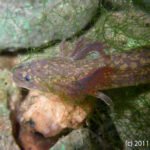Tumble - Science Podcast for Kids
A Common Sense Selection! Exploring stories of science discovery. Tumble is a science podcast created to be enjoyed by the entire family.
A Common Sense Selection! Exploring stories of science discovery. Tumble is a science podcast created to be enjoyed by the entire family.
 Episode One: The Mystery of the Barton Springs Salamander with Dr. Hayley Gillespie
Episode One: The Mystery of the Barton Springs Salamander with Dr. Hayley GillespieCreated by: Tumble Media
Started: February 24th, 2015
Status: Active, 281 episodes
Kind: Episodic
Language: English

<a href="https://soundcarrot.com/shows/shows/tumble-science-podcast-for-kids/page/18/" title="SoundCarrot.com - Children's podcasts"><img src="https://soundcarrot.com/img/sc-sm.png" alt="Listen On SoundCarrot" style="width: 200px; height: auto" /></a>What are the origins of owls, and why do they stay up at night? We answer questions from two owl-curious Tumble listeners. with the help of Harvard ornithologist Dr. Scott Edwards. He takes us on a journey starting in the time of the dinosaurs, to unravel the secrets of what made owls WHOOOO they are today.
What happens when a scientist is also a musician? For Barbara McClintock, the combination may have led the way to a Nobel Prize in genetics. Science historian Jocelyn Bosley tells us the story of Barbara’s remarkable life, and how her experience playing banjo in a jazz band (yes) helped her discover “jumping genes.”
What happens when a baby falcon meets a balloon telescope in an old Wild West town? An astrophysics animal adventure, of course! Erika Hamden is an astrophysicist who’s attempting to launch a space balloon telescope called FIREBall, an experiment to study distant galaxies. But her mission to the stratosphere leads her to wild nature, when a baby falcon falls out of its nest and onto the telescope. It turns out, launches don’t always go as planned.
Do trees fart? It’s a question that stumped scientists, and sends us on a journey to some serious science! Come with us as we ponder if trees are butts, whether farts are defined by gas or digestive systems, and why “even the smallest fart counts.”
Do you love fossils and dinosaurs? Let us introduce you to Myria Perez, a paleontology-obsessed kid who grew up to get her dream job! Myria is a 24 year old fossil preparator, which means she prepares fossils to study and display in museums. She shares her journey of how a visit to her local museum set her on the path to follow her dino dreams.
Tumble returns with all new episodes starting January 22! We’ll have stories about fossils, telescopes, and baby falcons getting into big trouble.
A log that poops presents? Find out about Lindsay and Marshall’s favorite holiday tradition, Tió de Nadal! Followed by one of Tumble’s favorite-ever episode, The Secret Life of Plants.
How did scientists develop coronavirus vaccines in record time? New York Times science reporter Carl Zimmer is our guide to the coronavirus vaccine race – from the starting line, to the point when several teams are racing to the finish line. Find out how science gave the competitors a turbo boost that could save hundreds of millions of lives.
Created by: Tumble Media
Started:
February 24th, 2015
Status: Active, 281 episodes
Kind: Episodic
Language: English
When Chloe is sent off to live with her mysterious and eccentric grandmother she learns an unbelievable secret. Grandma Ivy is none other than Mother Nature herself! And Chloe is next in line to assume to the power and responsibility of the job. Can a twelve-year old learn to balance the entire world’s ecosystem while just trying to fit in at her new school? Only Mother Nature knows.
Find your next favourite Podcast
Sound Carrot is your source for Family Podcast Discovery. Verified awesome, 0% boring.
Privacy Focused
Distraction free website, no flashing banners or adverts to steal your attention.
(Some shows do contain their own ads however).
Kid verified
At first I made this site for my kids, but like any dad I got a little over excited. I hope you find it as useful as they do.
Whether you want to listen to them together in the car, or alone in your room - the content is all safe for younger ears.